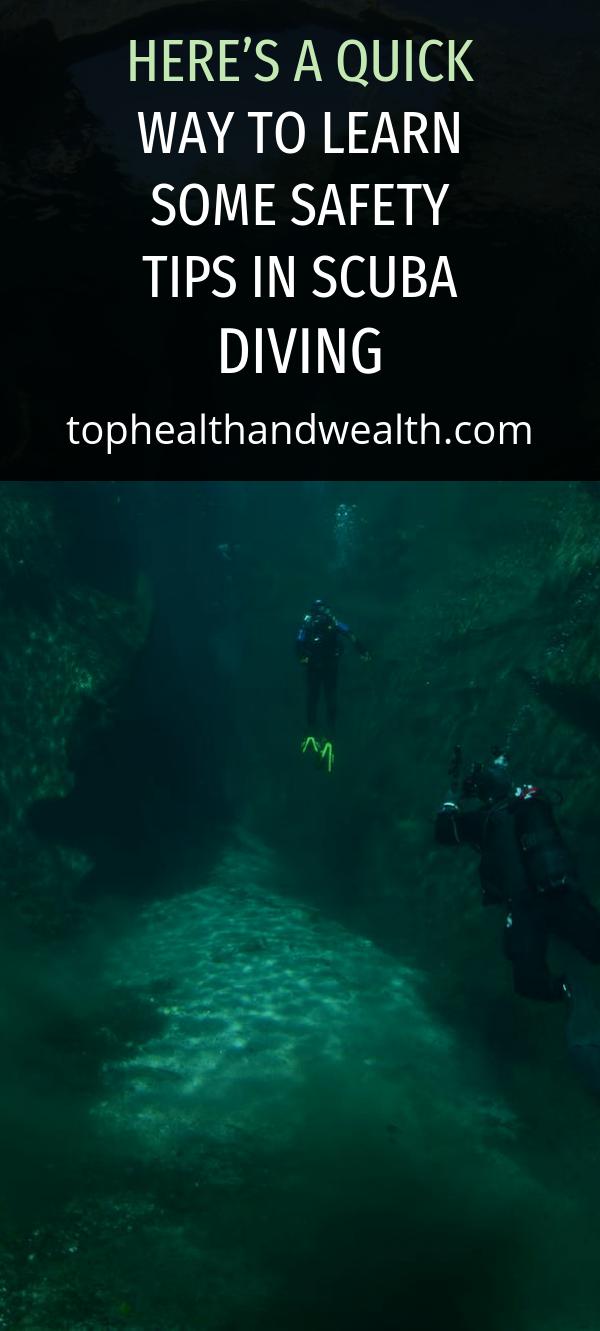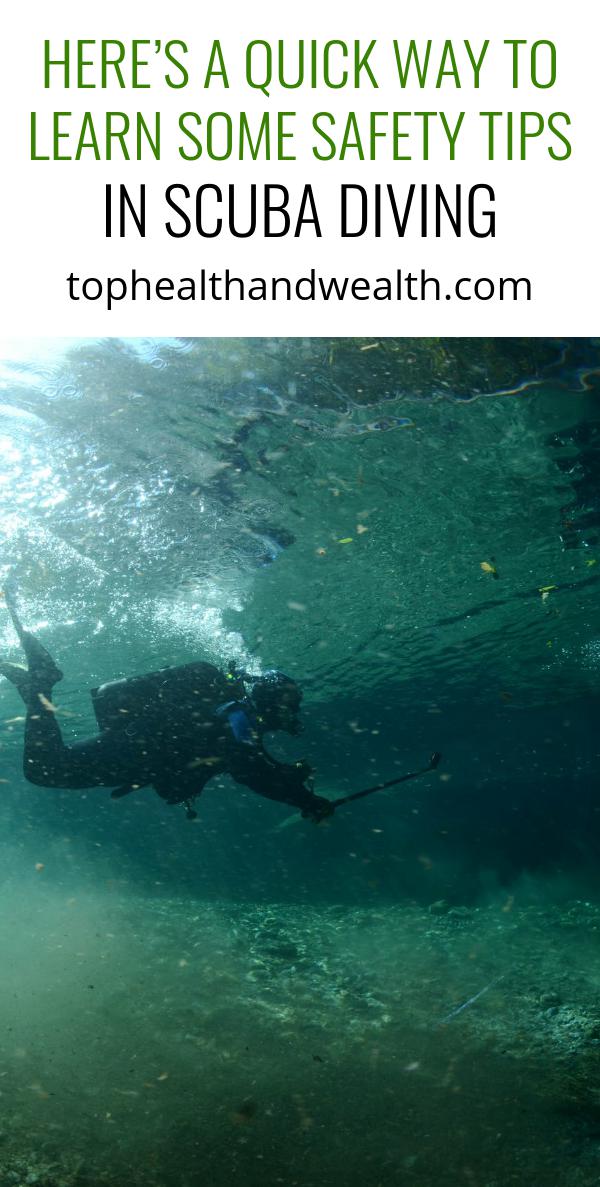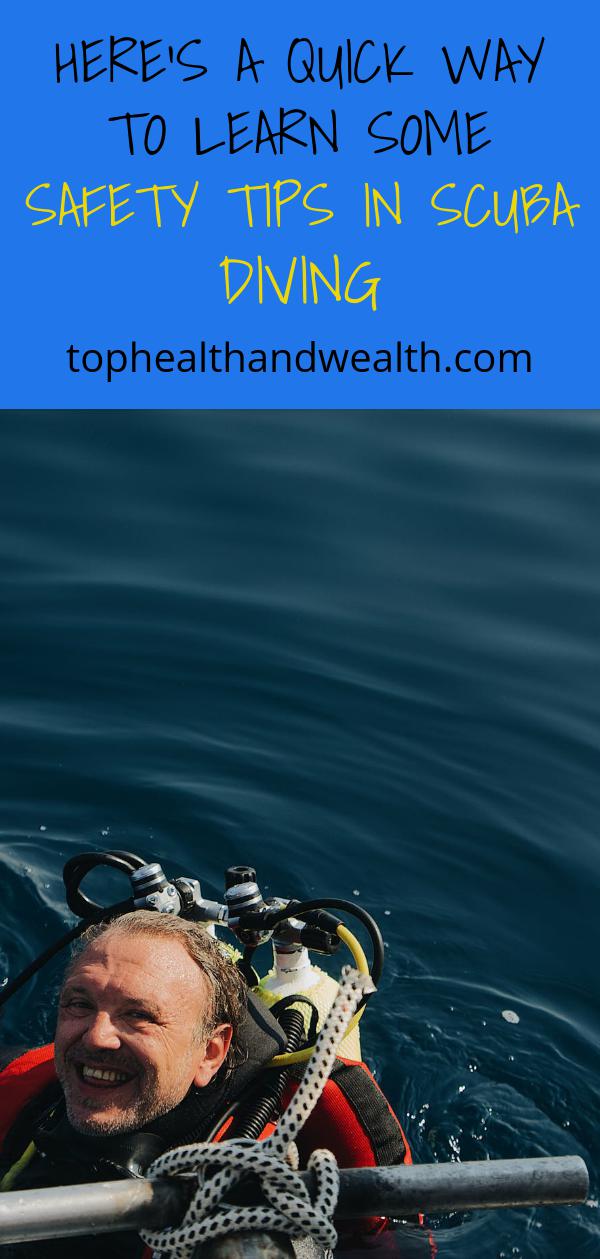Scuba diving is a unique and beautiful experience that everyone should try at least once in their lifetime. Barring perhaps hydrophobics, almost anyone will find the experience of being underwater and floating along both exhilarating and relaxing at the same time. However, without proper training and preparation, scuba can also be a dangerous undertaking, with hazards that can affect the unprepared. With proper equipment and precautions, however, it is a safe and wonderful thing to do. Here are a few safety tips for the beginning scuba diver to consider before taking up diving in earnest.
Training – Get certified. Take a training course that has official certification. If diving only for sport while on vacation like some people do, make sure that you have a certified instructor accompanying you on your dive. If diving in earnest, take a course that will actually give you a certificate for diving (not necessarily as an instructor, but one that will register you as a certified and capable scuba diver).

Physical Conditioning – see a doctor before taking up scuba. Make sure that your doctor gives you a clean bill of health for the physical exertions required in scuba. While mentally relaxing, scuba diving involves enough physical effort that people with weak cardiovascular and especially respiratory systems can’t indulge in it. Asthma, a weak heart, tendencies for asphyxiation, all of these can disqualify a person from scuba diving. Also on the note of physical capability, knowing how to swim is a huge bonus. While not a necessity because scuba gear allows even those who don’t know how to swim to navigate underwater, it is nonetheless a very good thing to know. After all, you’ll be underwater…
Avoid Places Where Bad Things Dwell – your training and certification in scuba will include a ranking that determines what levels of underwater hazards you’re trained to tackle. Avoid any places that you aren’t certified to handle. These areas will usually be very dangerous for the untrained, and will usually include special hazards that need their own branch of specialized scuba training or certain pieces of equipment to overcome. Examples include scuba diving in shark infested waters, ice floes, amongst coral reefs with toxic or aggressive underwater lifeforms, underwater caves, and shipwrecks.
Proper Equipment Is A Must – your training and certification should also include care and maintenance of the scuba equipment. If you’re using your own equipment, make sure that you take excellent care of it, keeping it in top condition. No matter how skilled you are at navigating underwater, man is NOT biologically aquatic, and your equipment is all that’s keeping you alive down there. If renting equipment, give it much more than a cursory once-over. Examine it carefully to make sure there are no flaws in the gear that might cause it to fail during a dive. One of the hazards of scuba diving is drowning if your breathing apparatus gives out.
Don’t Dive Alone – Always have a dive buddy or an instructor with you, as long as you are with someone who has more experience than you. If you’re diving with a buddy, don’t bring along someone who’s also a noobie if you yourself are new to the game. If you’re an old hand diving with a noobie, make sure that your partner knows how to follow your instructions once underwater. If you MUST dive alone, then at least have someone manning the boat on the surface to make sure you’ve got a buddy on overwatch.

Study Conditions Before The Dive – listen to weather reports before the dive to make sure you don’t wind up diving during a typhoon or worse, a thunderstorm. Even if the conditions seem okay for diving, make sure to pack enough medical equipment to compensate for sudden changes in the weather. Even if it’s a heat wave and not something related to wind and rain, adverse weather can be problematic. Heat waves have been known to cause heat stroke and dehydration to divers who thought they were safe from the heatwave because they were underwater. Remember that water conducts heat more efficiently than air.
Know When Bad Things Are Happening – learn and internalize the medical signs and symptoms of the following conditions, as they are the maladies that usually afflict divers. Hypothermia, dehydration, heat exhaustion, and asphyxiation are the things to watch out for, as well as a diver-specific malady called decompression sickness, which occurs when a diver’s body is submitted to and becomes accustomed to high pressures underwater, as well as having air bubbles form in the body from prolonged breathing of high pressure gas. Returning to the surface where the body no longer is subject to these pressures can lead to dizziness, sickness, and vomiting from system shock. It is in a way, comparable to a person being used to the thin air of mountain climbing, when the climber goes back to a normal atmosphere and breathes a higher concentration of oxygen.
